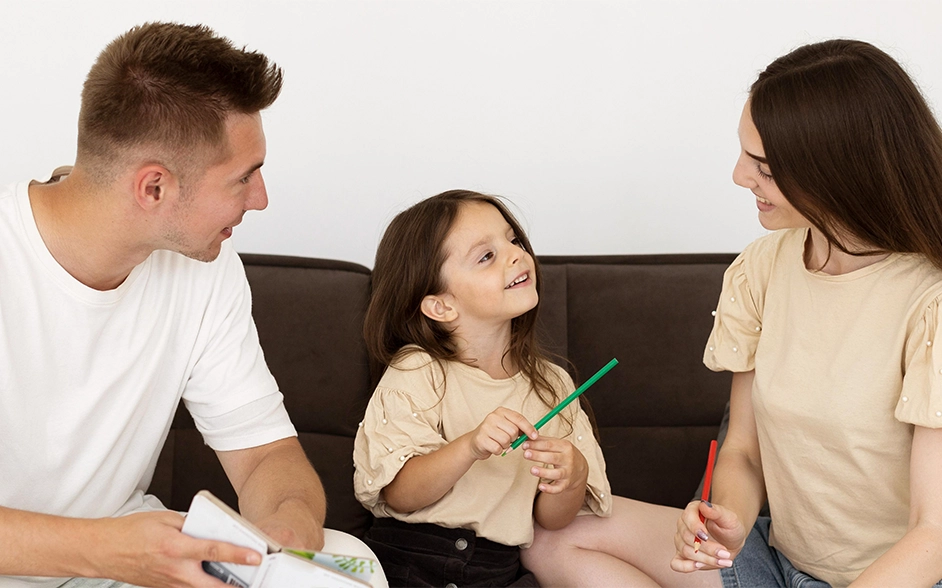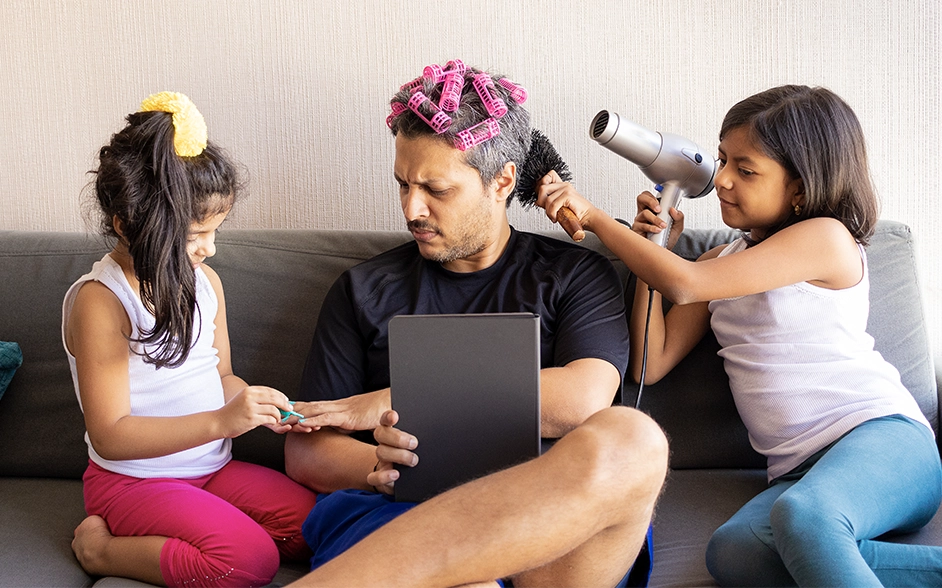- Mumbai, New Delhi, Bangalore
- (+91) 81518 30000
- WhatsApp Now
- contact@vedawellnessworld.com
In this witty and insightful breakdown of traditional vs. modern parenting styles, we explore how the two ends of the parenting spectrum-wooden spoon lectures vs. gentle affirmations are affecting children’s mental health today. Whether you are a “When I was your age” parent or a “Let’s talk about your feelings” kind, this blog is your no-nonsense guide to understanding how parenting styles influence long-term emotional well-being.
Please note that we are covering parenting styles, mental health in children, and modern vs traditional parenting effects all in one entertaining scroll.
1. Discipline vs. Discussion
Impact on Mental Health:
Traditional discipline teaches obedience—and sometimes repression.
Modern methods build emotional intelligence, but risk raising kids who negotiate bedtime like lawyers.
Balance is key. Teach respect, but give them a voice.
2. Fear-Based vs. Freedom-Based Parenting
Impact:
Fear-based parenting can lead to anxiety, perfectionism, and fear of failure.
Freedom-based parenting nurtures self-worth, but when overdone, it can blur the value of discipline and realistic effort.
Children need encouragement without pressure, and support without over-validation. Fear shouldn’t be the motivator—and failure shouldn’t be romanticized.
Teach them to try, to fail, and to rise—with both backbone and cushion.
3. Chores and Responsibilities
Mental Health Angle:
Responsibility isn’t a burden—it’s a builder. It creates structure, self-worth, and life skills. Too little responsibility can lead to dependency, lack of resilience, and a false sense of ease.
4. Technology Rules
Mental Health Fallout:
Unrestricted screen time can harm attention, emotional regulation, and sleep patterns. But overly strict tech bans can trigger secrecy, rebellion, and lack of digital literacy.
Teach boundaries, not bans. And maybe don’t hand them the Wi-Fi password in preschool.
5. Sleep Training vs. Co-Sleeping Until College
What it does to their brain:
Sleep training can encourage independence—but if rushed, may cause stress and insecurity. On the flip side, extended co-sleeping can delay self-soothing and emotional separation.
6. Education Pressure
Long-Term Effect:
Too much pressure creates burnout, anxiety, and a fear of failure.
But zero expectations can lead to apathy, low motivation, and a lack of direction.
Kids thrive where effort is praised more than outcome.
Push for growth, not perfection. Celebrate trying, not just winning.
7. Expressing Emotions
Suppressing emotions leads to internalized trauma, shame, and emotional disconnection. But unfiltered expression without regulation can result in impulsivity and poor coping skills.
8. Life Skills vs. Overprotection
Impact on Mental Health:
Early independence builds confidence, problem-solving, and emotional grit. Overprotection can create anxiety, low resilience, and fear of unfamiliar situations.
9. Community vs. Privacy
A strong community fosters belonging and emotional support. Personal privacy encourages identity formation and autonomy.
10. Talking About Mental Health
Impact on Mental Health:
Ignoring mental health fosters stigma, shame, and silent struggles.
Over-labeling every emotion can blur the line between feelings and diagnoses.
Fear ≠ respect. It creates anxiety, not admiration. True respect comes from trust and consistency.
2. “Too much freedom means they’ll turn out great.”
Without boundaries, freedom becomes confusion.
Kids need structure to thrive—freedom with guidance is the key.
3. “Praising everything boosts confidence.”
Overpraise can build fragile egos.
Praise effort, progress, and resilience—not just results.
4. “My child’s mental health is fine. They smile a lot.”
Smiling can be a shield.
Don’t stop at surface-level signs—ask how they really feel.
5. “Rehab and therapy are only for extreme cases.”
Support isn’t just for rock bottom.
Even screen addiction, emotional outbursts, or validation-seeking deserve attention.
There is no perfect answer. The best approach is a balanced one, firm but kind, structured but flexible.
Look for signs: anxiety, mood swings, withdrawal, or unhealthy perfectionism. Kids reflect what they absorb.
Yes, with awareness, change, support, and sometimes professional therapy, children can absolutely heal.
Absolutely. Normalize it. Say it’s like going to a doctor but for feelings.
Veda Rehab and Wellness supports families with emotional healing, digital detox, therapy, and parenting guidance through both offline and online services like Sober Life and Let’s Get Happi.
Here is the truth, every parent is making it up as they go.
Whether you are a chai-sipping traditionalist or a kombucha-loving modern parent, your goal is the same: to raise a happy, healthy human being.
So, take a deep breath. Laugh at your parenting fails.
And just remember-love, presence, and a little bit of wisdom (and Wi-Fi restrictions) go a long way.
